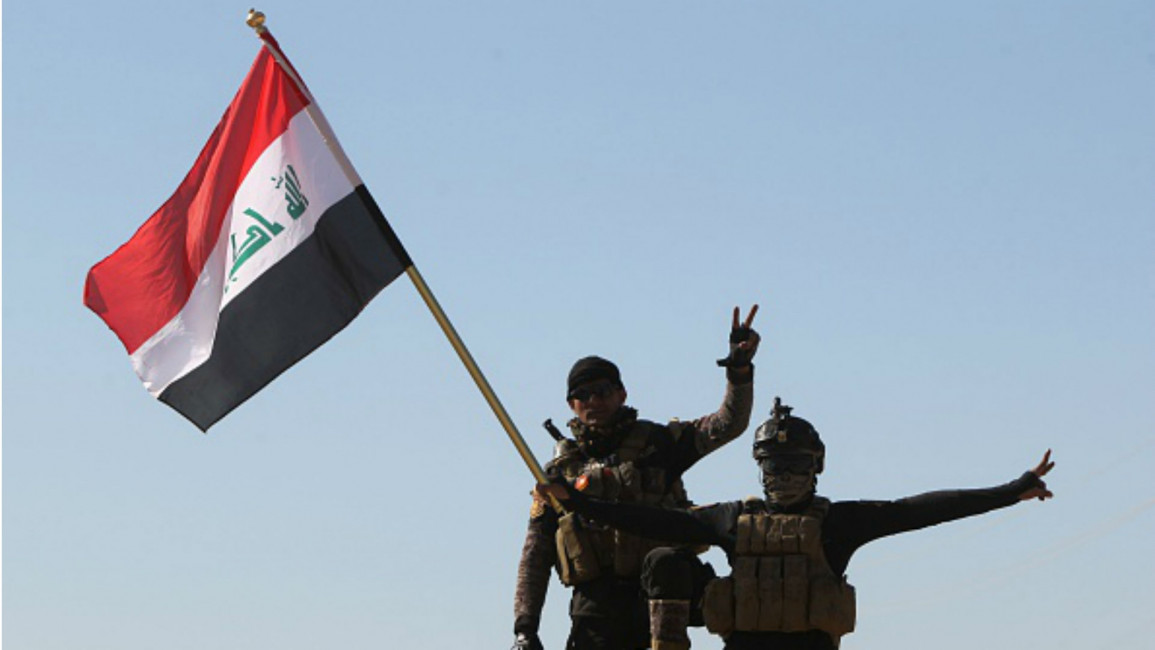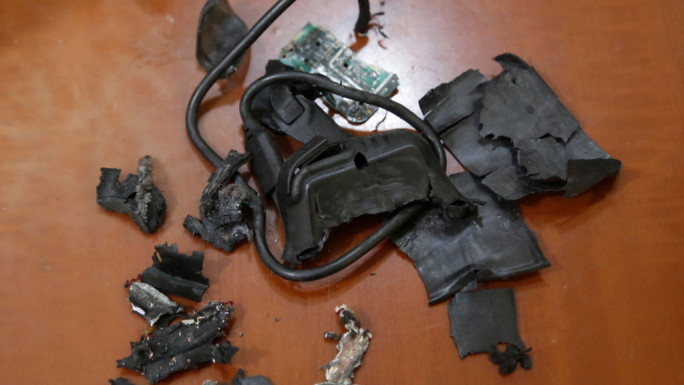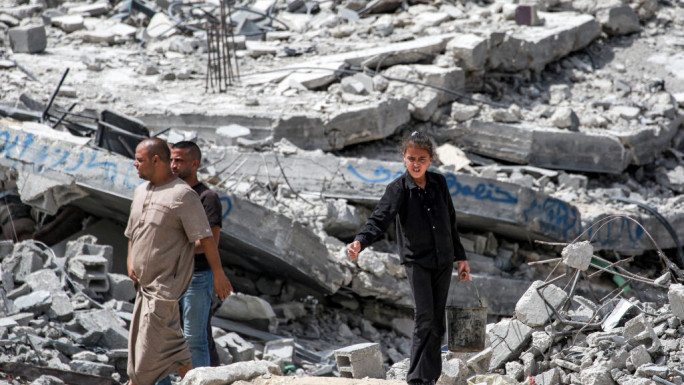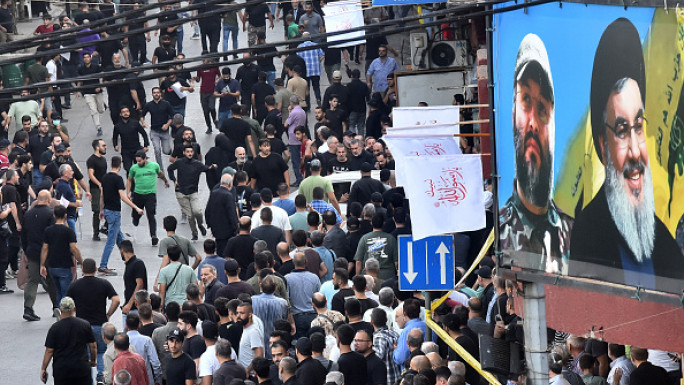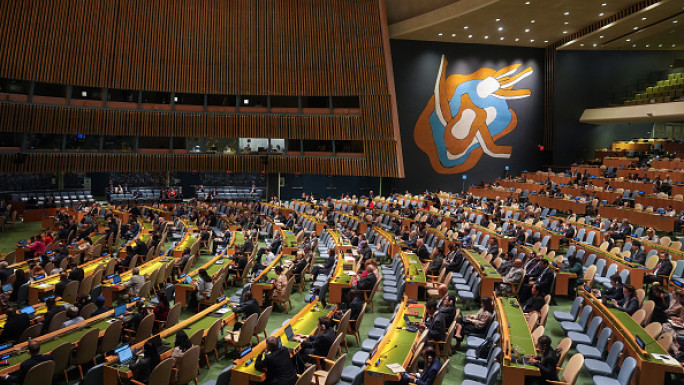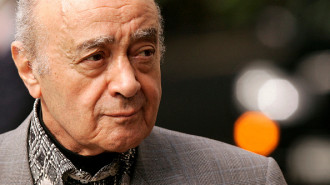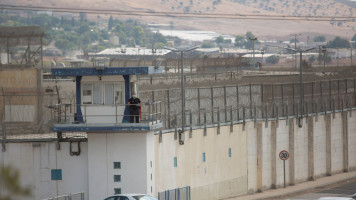Iraqi forces prepare for final Tikrit attack
Iraqi commanders were developing a strategy for flushing out the remaining Islamic State group (IS, formally known as ISIS) from central Tikrit, which, one commander said Saturday, would be liberated within three days.
Military officials had earlier told al-Araby al-Jadeed that the advance of Iraqi army forces and allied militias had been halted by and IS counter-push, but as Saturday wore on, Iraq's government appeared more bullish.
The massively outnumbered IS fighters are completely boxed in, according to military officials, but are protected by snipers and thousands of bombs they planted across the city.
That has slowed the progress of the broad alliance of forces battling IS, which is keen to minimise casualties on the way to what would be the biggest victory yet against the group.
Karim al-Nuri, a top leader of the Shia Badr militia and spokesman of the volunteer Popular Mobilisation units, said it would take no more than "72 hours" to liberate Tikrit from IS, which seized it last summer.
Tikrit is the hometown of Saddam Hussein, and recapturing it from IS forces would be a massive morale boost for an army that simply disappeared last summer, as well as a strategic victory over the militants.
Baghdad has failed several times to retake Tikrit, but this operation is on a different scale, with up to 30,000 men involved.
Military coordination has improved, the cooperation of some Sunni tribesmen secured and Iran is said to have played a key role in the operation's planning and execution.
IS has countered every military loss lately by ramping up its propaganda war with ever more shocking acts, including a video of a boy apparently executing a prisoner, and the destruction of priceless archaeological heritage sites.
The last defenders are holed up in the city centre and "surrounded from all sides", Nuri said.
Speaking to AFP from the outskirts of Tikrit, near the village of Awja, he said "their number is now 60 to 70".
An lieutenant colonel in the army's elite counter-terrorism forces was more conservative about the battle's evolution, saying "battles in cities are difficult for all armies".
IS unsing chlorine gas
Meanwhile, the Kurdish government in Iraq said Saturday, that it has evidence examined by an independent laboratory confirming that the Islamic State group used chlorine gas as a chemical weapon against peshmerga fighters.
The allegation by the Kurdistan Region Security Council, stemming from a 23 January 2015 suicide truck bomb attack in northern Iraq.
The allegations have not yet drawn a reaction from the IS, which holds a third of Iraq and neighboring Syria in its self-declared caliphate. However, Iraqi officials and Kurds fighting in Syria have made similar allegations about the militants using the low-grade chemical weapons against them.
In a statement, the council said the alleged chemical attack took place on a road between Iraq's second-largest city, Mosul, and the Syrian border, as peshmerga forces fought to seize a vital supply line used by the Sunni militants. It said its fighters later found "around 20 gas canisters" that had been loaded onto the truck involved in the attack.
"The fact ISIS relies on such tactics demonstrates it has lost the initiative and is resorting to desperate measures," the Kurdish government said in the statement, using an alternate acronym for the militant group.
Chlorine, an industrial chemical, was first introduced as a chemical weapon at Ypres in World War I with disastrous effects as gas masks were not widely available at the time. While chlorine has many industrial and public uses, as a weapon it chokes victims to death.
This would not be the first time in the Middle East's recent history where chlorine gas is used as a weapon of war. In Syria, a chlorine gas attack on the outskirts of Damascus in 2013 killed hundreds. The U.S. and Western allies accused Assad's government of being responsible for that attack, while Damascus blamed rebels.
In Iraq May 2007, suicide bombers driving chlorine tankers struck three cities in Anbar province, killing two police officers and forcing about 350 Iraqi civilians and six U.S. troops to seek treatment for gas exposure. Those bombers belonged to al-Qaida in Iraq, which later evolved into what is known today as the Islamic State group.
